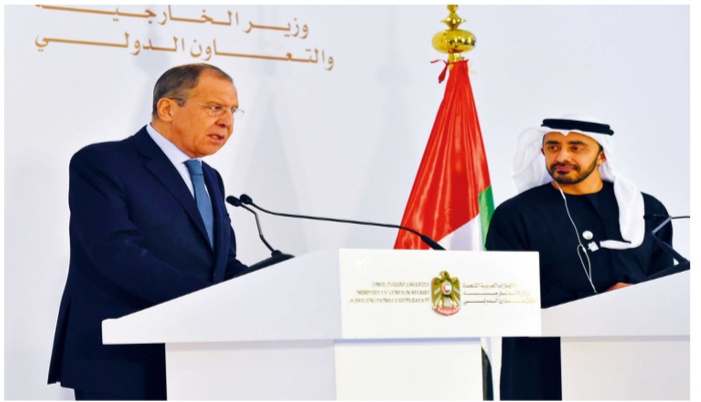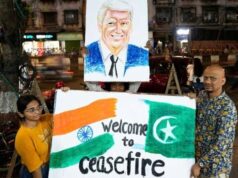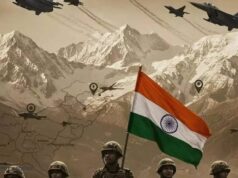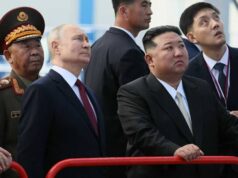The UAE has rejected claims by Iran’s foreign minister, Mohammad Zarif, that the UAE and Saudi Arabia were behind the escalating tensions between the US and Iran.
UAE Minister of State for Foreign Affairs, Anwar Gargash, said on Monday that Zarif’s latest comments “exposed crippled logic”.
In an interview with Fox News this week, Zarif accused the UAE, Saudi Arabia and Israel as well as US National Security Adviser John Bolton of “dragging” reluctant President Donald Trump into a conflict with Iran amid a stepped-up campaign by Washington against the Tehran regime.
“The circumstances surrounding Iran are the product of its own hands. Getting extricated from the crisis requires a realistic approach. Targeting our leadership backfires and will not help Iran in its ordeal, but will complicate the situation,” he added.
Iran is increasingly under international pressure to stop its destabilising acts in the Arab region.
Last week, the US declared ending sanctions waivers for Iranian oil imports, months after Trump re-imposed sanctions on Iran after he pulled out his country of a 2015 international nuclear deal with Tehran.
Earlier this month, the US designated Iran’s powerful Revolutionary Guard as a terrorist organisation.
Shaikh Abdullah Bin Zayed Al Nahyan, the UAE Minister of Foreign Affairs and International Cooperation, at a joint news conference with his Russian counterpart Sergei Lavrov
The UAE said on Wednesday that in view of the growing Turkish and Iranian influence, the absence of a strong Arab role in Syria is unacceptable.
Shaikh Abdullah Bin Zayed Al Nahyan, the UAE Minister of Foreign Affairs and International Cooperation, at a joint news conference with his Russian counterpart Sergei Lavrov, said: “In the UAE, we are keen that there’s an Arab role in Syria — political, related to stability and development.
“Our discussions with Russia are about containing Syria, so that Syria becomes part of the Arab region. Unfortunately, now, Syria is far [from the Arab fold].
The UAE reopened the embassy to start this process; this will need a role by Arab countries to work together for a [larger] Syria role.”
He added that though “we are far [from this goal] I think there’s an intention and desire [and that] needs hard work by many parties”.
Constitutional committee
Lavrov said Russia was still working on setting up the constitutional committee, which will help Syrians start the political process, which is aimed at restoring Syria’s integrity and sovereignty.
“We understand, the process will not be quick, but it is necessary to continue efforts along with the Syrian government and Turkey,” he said.
The decision to set up a constitutional committee was taken at the Syrian National Dialogue Congress, held in the Russian Black Sea resort of Sochi on January 30.
The committee is supposed to include representatives from the Syrian government and opposition, as well as civil society members. Former UN envoy for Syria Staffan de Mistura said not more than 50 people should be part of the committee.
Space cooperation
Meanwhile, Shaikh Abdullah also said UAE and Russia discussed cooperation in space.
“In September, we will see UAE’s first astronaut journey to the International Space Station, and we are looking forward to concluding a number of MoUs in the near future.”
He added that at the International Defence Exhibition (IDEX), Russia was a major participant.
“UAE in cooperation with Russia confronts modern and conventional threats — the fight against trafficking of narcotics, organised crime, money laundering and extremism.
Lavrov said active cooperation between Mubadala and Russia’s investment fund amounted to amounting to $2 billion.

Shaikh Abdulla Bin Zayed Al Nahyan, UAE Minister of Foriegn Affairs and Indian External Affairs Minister Sushma Swaraj, at the recent OIC conference in Abu Dhabi.
When a country hosts an international conference, it has the right to draw up the final statement.
And should any participating nation have objections to the communique, it should submit its objection in writing. Iran is apparently failing to recognise this. A case in point is the recently concluded Organisation of Islamic Cooperation (OIC) summit in Abu Dhabi.
Iran’s allegations that UAE Foreign Minister Shaikh Abdullah Bin Zayed “tended to impose his ambitious attitudes on the meeting by misusing UAE’s own particular position as the host of the conference and passed the statement” lacks merit.
If it had any serious objections, it should have withdrawn from the session. Instead, the head of the Iranian delegation continued to attend the conference, after lodging Tehran’s protest about the final statement.
At the summit, Shaikh Abdullah minced no words about what is a well-known fact: Iranian interference in the internal affairs of Arab states. He called on Tehran to stop spreading chaos in the region, saying: “We reiterate our demands to our neighbour Iran to review its policy and to stop interference in the affairs of states, supporting groups that fuel conflicts and to stop supporting, financing and arming terrorist organisations.”
Iran has an inflated view of its position in the 57-member OIC. Given that it has attained a certain degree of influence through proxy groups in some Arab states, it feels it can use its influence to have a significant impact on the final statement, and also on the proceedings of the conference.
On Monday, the Netherlands recalled its ambassador to Iran for consultations in response to the expulsion of two diplomats at its embassy in Tehran.
The move comes two months after the Netherlands accused Tehran of being behind political killings in the country, and attempted murders in France and Denmark, that triggered new European Union sanctions against Tehran.
This move clearly shows that even within the European Union, where some countries still back the nuclear deal with Iran, it is losing friends.
Iran has repeatedly shown its contempt for international law, and has for decades refused neutral arbitration on the issue of its occupation of the three UAE islands, Abu Mousa and the Greater and Lesser Tunbs.
Iran knows it cannot back up its claims on the islands in the face of international arbitration. For a country that shows such disregard for international law, Iran’s baseless accusations against others ring hollow.




